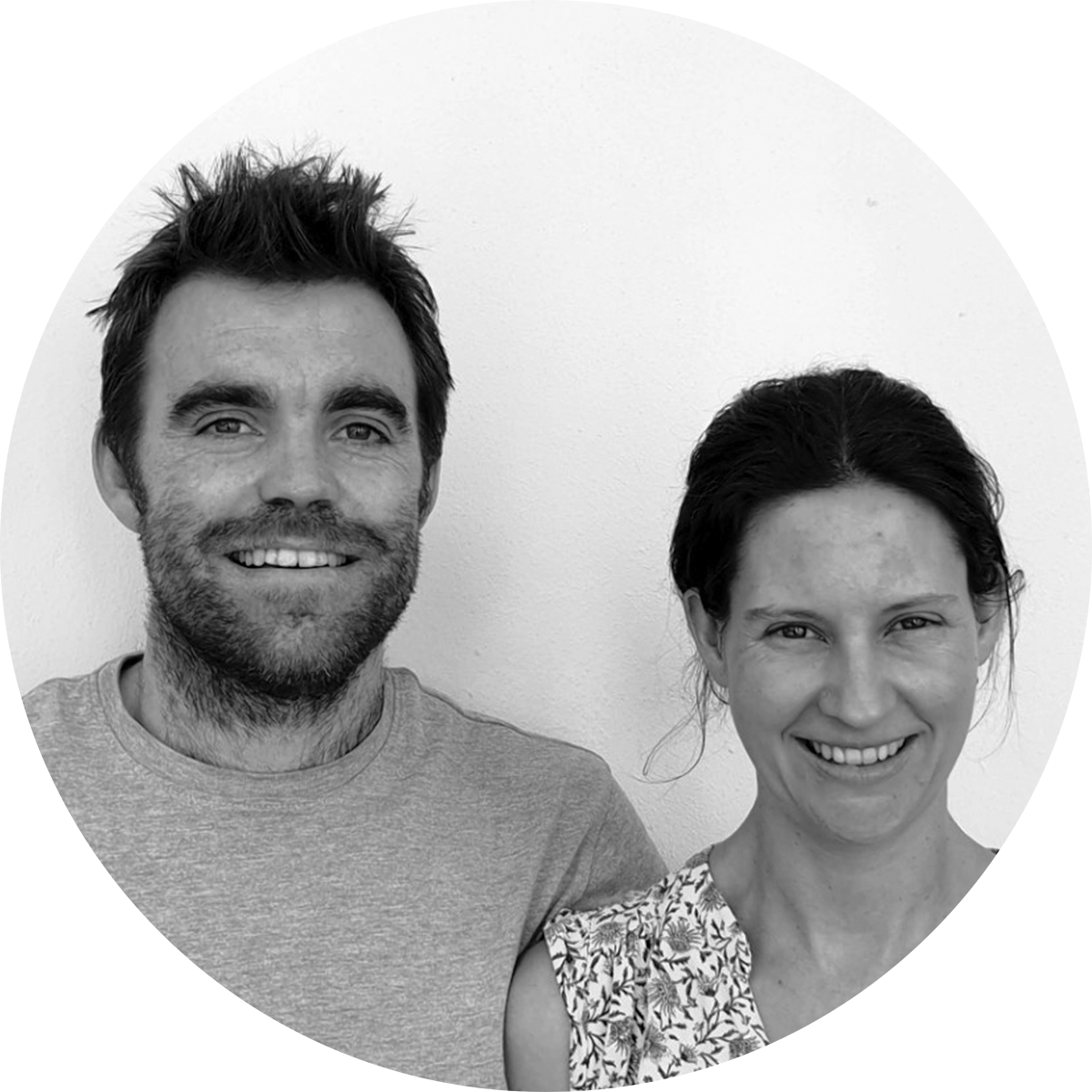CRAVEN WINES
MICK & JEANINE CRAVEN
Stellenbosch, South Africa
Craven is the winemaking project of husband-and-wife team Mick and Jeanine Craven - Mick is an Aussie and Jeanine is South African, they met in Sonoma for harvest in 2007. After travelling across the world together for four years and learning about wines in Australia, Europe, the States and South America, the couple returned to South Africa in late 2011. They felt Stellenbosch had such an amazing array of sites and terroir, and that it is perfect for what they want to do, which is making site-specific, honest wines. With the aim of rediscovering the best vineyard sites in Stellenbosch, together with a whole group of young guns, Craven Wines is one of the most interesting wine projects in South Africa.
BACKGROUND OF NATURAL WINE IN SOUTH AFRICA
South Africa's natural wine scene is a captivating fusion of centuries-old winemaking traditions and a modern commitment to sustainable, low-intervention practices. The country's viticultural history dates back to the 17th century, and today, a vibrant natural wine movement is flourishing within its diverse wine regions. Stellenbosch, Swartland, and the Western Cape are key areas where pioneering winemakers are steering towards organic and biodynamic methods, crafting wines that reflect the unique South African terroir. Indigenous grape varieties such as Chenin Blanc and Cinsault are gaining prominence, adding a distinct local character to the burgeoning world of South African natural wines.
Organic, Biodynamic and Natural wine. What’s the difference?
To understand this concept and its various ramifications, it is necessary to keep something clear in mind: before the 20th century and the spreading of affordable synthetic fertilisers, all farming was organic. When the shift to the use of synthetics and pesticides happened, it became necessary to diversify traditional organic farming from the new modern farming.
ORGANIC WINE
Simply put, organic farming forbids the use of synthetic fertilisers, synthetic pesticides, herbicides, or genetically modified organisms. The basic requirements are generally specific and engage the farmers not to use any chemical fertilisers and other synthetic products in the vineyard. It does not prevent the vintner from using the conventional winemaking process after harvesting.
BIODYNAMIC WINE
Let’s take organic farming one step further: Biodynamic. The creator of this agricultural system is the Austrian philosopher Rudolf Steiner, who developed the principles of biodynamics in a series of lectures given in 1924 in Germany. Here lies the foundation of true organic wines, with a strict limit in the use of additives, stringent requirements and at the end obtaining a biodynamic certification.
NATURAL WINE
The previous definitions are usually, and rightfully, associated with it, because most natural wine is also organic and/or biodynamic. But not vice versa!
Natural wine is wine in its purest form, simply described as nothing added, nothing taken away, just grapes fermented. No manipulation whatsoever, minimal intervention both in the vineyards and in the winery. Healthy grapes, natural yeast and natural fermentation, with no filtration nor fining. Sounds easy, right? However, making natural wine is unforgiving and it requires a bigger amount of work than conventional wine. To this day, natural wine has no certification yet.





